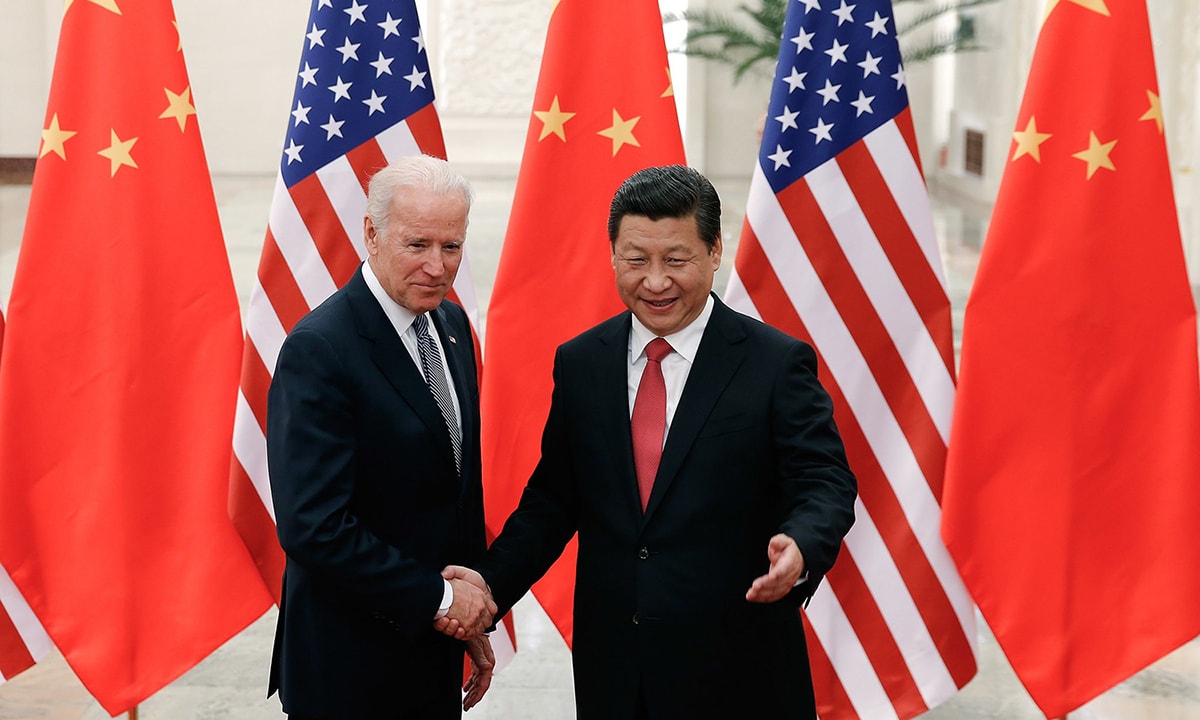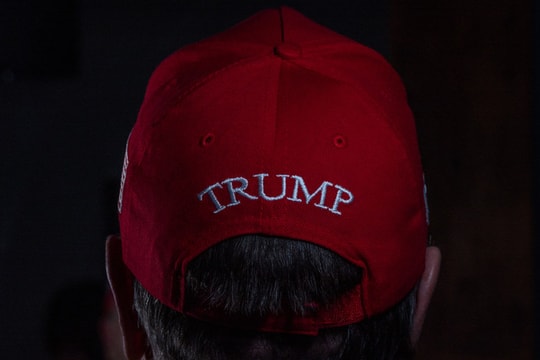Biden-Xi Jinping Conference and the Message the US Wants to Send to China
(Baonghean.vn) - Several informed sources said that White House officials are making efforts to prepare for an online summit between US President Joe Biden and Chinese President Xi Jinping.
The heated diplomatic contacts between US and Chinese officials in the early days of the Joe Biden administration have left US allies deeply worried. US officials believe that engaging directly with Xi Jinping, who has consolidated power in Beijing to a degree not seen since Mao Zedong, is the best way to prevent the competitive relationship between the world’s two largest economies from spiraling into conflict.
 |
| US President Joe Biden and Chinese President Xi Jinping. Photo: AP |
Due to China's domestic COVID-19 pandemic restrictions and Mr.Xi JinpingAs for foreign travel, the US is aiming to hold a virtual summit between the two countries' leaders in November. However, plans are still in the discussion stage.
Agenda of the summitBiden- The meeting will likely be decided after consultations with Washington's allies, first on the sidelines of the G20 summit in Rome and then the 26th Conference of the Parties to the United Nations Framework Convention on Climate Change (COP26) in Glasgow, UK.
Biden is expected to attend both events. Xi Jinping, who has not traveled abroad since the early stages of the pandemic, is also unlikely to attend either. While the odds of a Biden-Xi meeting remain uncertain, relations between Washington and Beijing have long been strained by disputes over the origins of the coronavirus, human rights, and China’s expanding nuclear arsenal.
So far, Biden's team, which has been busy preparing for the meeting, has not placed much hope that the virtual meeting will yield any concrete results. The team has also declined to reveal what issues might be discussed at the meeting. A senior US administration official said generally: "We are still planning the specific content of the bilateral conference in an online format and do not have any content to preview at this time."
But the meeting itself will be an important outcome, sources familiar with the matter said, in the hope of bringing stability to what Washington has said is a long-term strategic competition. At a September meeting in Switzerland, officials from both sides agreed to hold a virtual summit before the end of 2021, with exchanges and contacts at the national leadership level aimed at resetting the bilateral relationship on a more “constructive” path. At the time, a senior Biden administration official said: “It’s very important for the leaders of both countries to play a larger role in managing the bilateral relationship.”
Susan Thornton, a former US State Department official in charge of Asia and now at the Brookings Institution, said the upcoming meeting could help fill gaps in communication between leaders and reduce the risk of conflict in bilateral relations that are still in a "crisis spiral". The expert emphasized: "Although the online meeting is not necessarily an outcome, it has the effect of preventing all aspects of the relationship from progressing in a worse direction".
During the trade war launched by the previous administration of Donald Trump, Chinese officials sought to put Beijing in a superior position, arguing that US officials needed China more when they sought opportunities for dialogue with China. Now, Biden officials are trying to show that the US is a responsible power, flipping that narrative on its head. They also told reporters after Biden's September 9 phone call with Xi that the call was initiated by the White House boss himself.
In abandoning Trump's "go it alone" approach to China, Biden has staked his strategy on mobilizing allies and partners in Europe and Asia to increase influence and pressure on Beijing. David O'Sullivan, a former European Union (EU) ambassador to Washington, said that America's European allies were "very concerned" about the risk of US-China relations being dragged into conflict if the two sides could not manage the relationship properly. Evidence of the mismanagement of the US-China relationship was evident at a "fierce" meeting between senior diplomats from both sides in Alaska in March. "These are the messages that people want to send to the Biden administration. I think the Biden administration understands this, and that may be one of the reasons why Washington is reaching out to China," he said.
Days after the Alaska meeting, US Secretary of State Antony Blinken felt the need to reinforce the message to Brussels that Washington would not force any NATO ally to choose sides between the US and China. An Asian diplomat revealed that "every country in the world has some concerns about how the US-China relationship will develop after the Alaska meeting.
The US softening of tone is also a significant move for Xi Jinping as the leader wants to "smooth sailing" in major political events taking place in China in 2022, including the Winter Olympics in Beijing scheduled for February 2022 and the Communist Party Congress, a political event that will see Xi continue to hold the role of General Secretary for an unprecedented third term. "Not disrupting one of those major events requires a managed relationship between the US and China. In other words, you need to minimize the risk of conflict in the relationship within the next 12 months, which is very important for Xi Jinping domestically," the Asian diplomat told Reuters.
Washington is still deciding whether to send its athletes to the games after the US accused China of committing “genocide” against Muslim minorities in the Xinjiang autonomous region. Biden administration officials have so far resisted calls from human rights groups and US lawmakers to boycott the sporting event. With many disagreements, US officials insist that “thawing” relations would be a mistake.
The Biden administration has recently expressed concern about evidence that China has been strengthening its nuclear capabilities, especially hypersonic missiles. Washington has also accused Beijing of increasing military activities aimed at intimidating the democratic island of Taiwan. On October 20, Nicholas Burns, former US Deputy Secretary of State and Biden's nominee to be US ambassador to China, called China Washington's "most dangerous competitor" and said the US needed to work closely with its allies. "President Biden has worked hard to emphasize the need for the US to be very closely aligned with our treaty allies and defense partners," Burns said.

.jpg)
.jpg)





